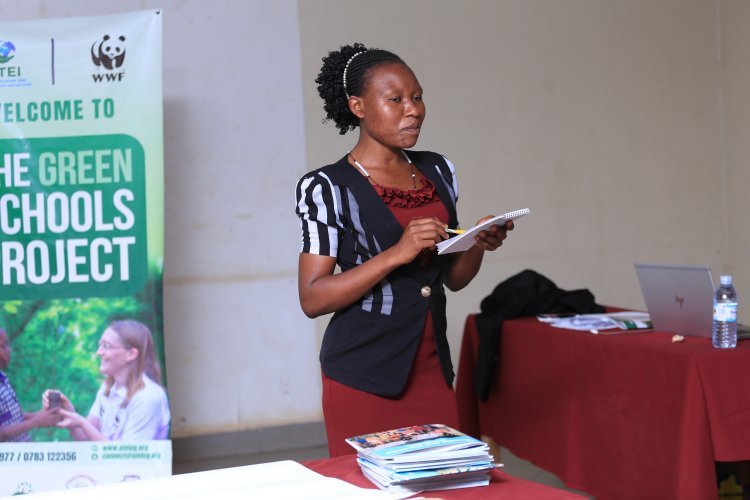ATEI’s Mbambu Playbook Sparks a Green Awakening in Rwenzori Schools
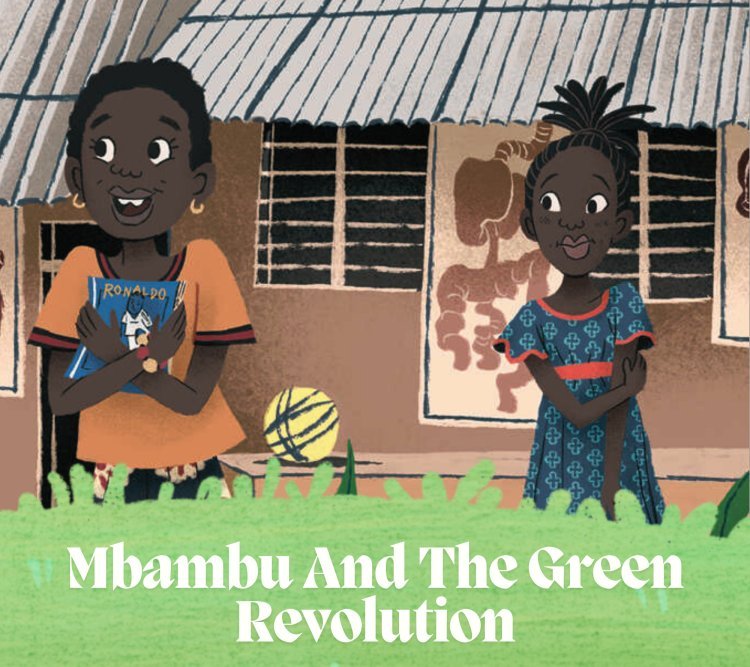
“Mbambu and the Green Revolution,” a playbook developed by Africa Tourism and Environment Initiatives (ATEI) is now in the hands of over 2,000 pupils and teachers from 35 schools participating in the Green Schools Project supported by WWF Uganda.
In a recent empowerment session hosted in Kasese, ATEI brought together school patrons and students to introduce the resource and guide them on how to use it effectively as a learning and action tool.
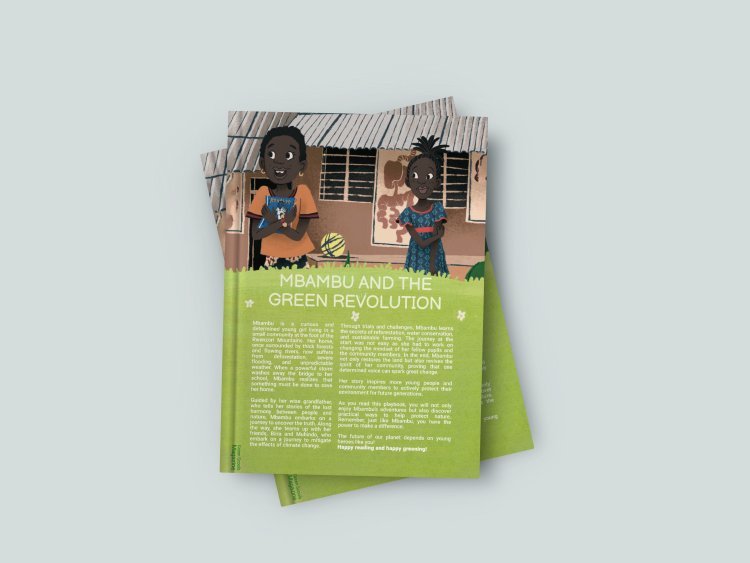
The playbook follows the journey of Mbambu, a brave and curious young girl living at the foot of the once-thriving Rwenzori Mountains. Her community, like many others, is suffering the consequences of deforestation, flooding, and erratic weather.
When a devastating storm washes away the bridge to her school, Mbambu realizes that the survival of her community depends on a new way of thinking and acting.
She discovers the power of reforestation, restoration, and mindset change, proving that even one determined voice can reignite the regenerative spirit of an entire village.
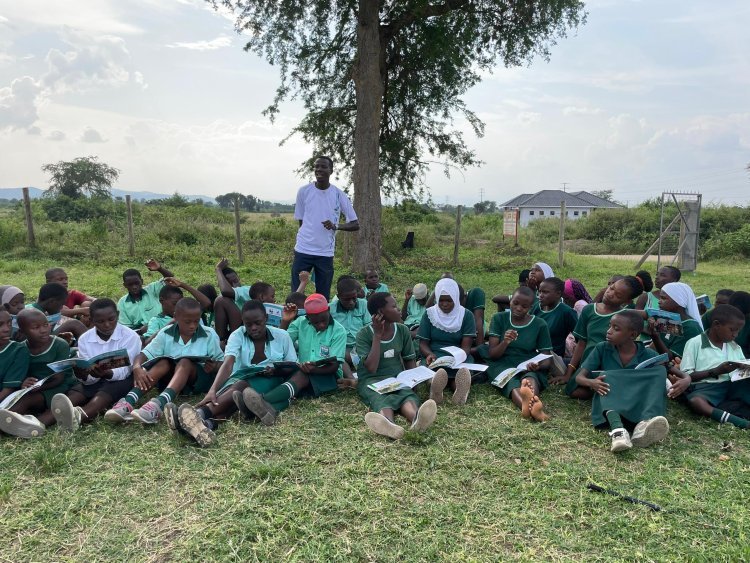
Students of Katunguru Primary School reading the playbook
Guided by her wise grandfather and joined by her friends Biira and Muhindo, she embarks on a mission to restore her environment and change hearts and minds. Through trials, setbacks, and small victories, Mbambu inspires her school and community to embrace reforestation, climate-smart farming, and collective environmental stewardship.
Bismac Moses Amumpaire, Executive Director of ATEI, noted that; “Mbambu represents the voice of many young people who see the degradation happening around them but don’t know where or how to begin. This playbook is their blueprint for action.”
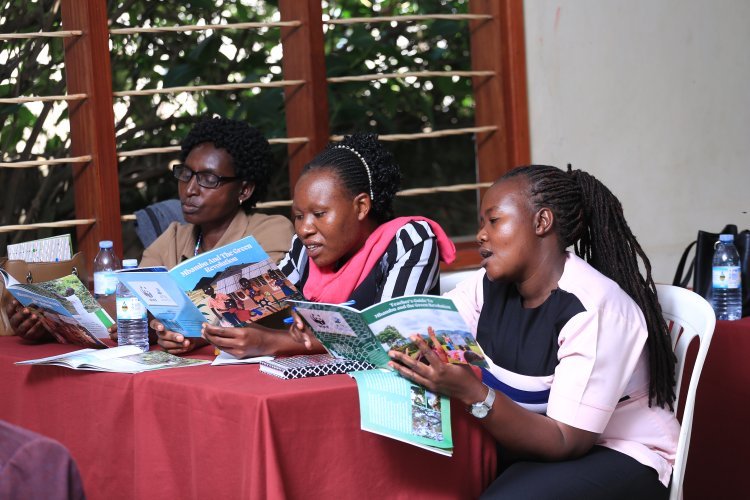
Patrons reading through the playbook
“In every village, in every school, there is a Mbambu. A child who sees, who cares, and who wants to act. But without guidance, without the right tools, that energy can be lost. That’s why we’re here to empower these young visionaries with something they can relate to, learn from, and take ownership of,” he added.
During the session, patrons and students were guided through how to use the playbook as a learning and engagement tool.
Amumpaire emphasized that the playbook was developed not just for reading, but for reflection, discussion, and action in schools and homes.
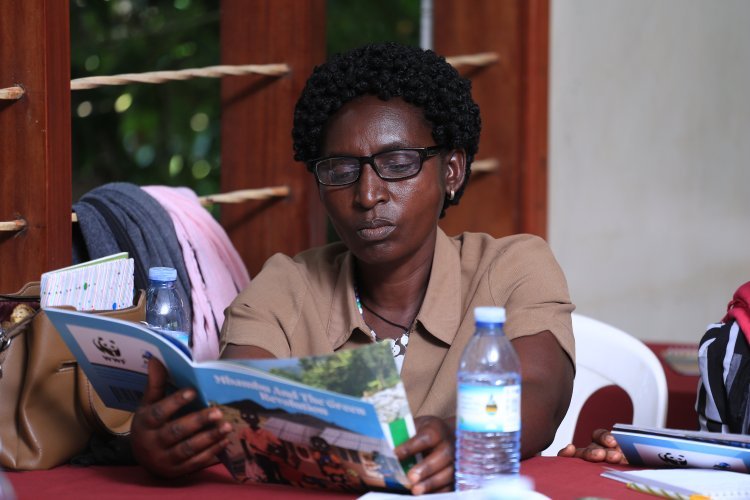
A patron scribbles through the playbook
Discussions were held around:
- How to integrate the story into club activities
- Ways to link lessons from the playbook with real-life school projects like tree planting, school gardens, and climate education
- Methods for sparking intergenerational conversations on restoring nature
“We don’t want our children to just read about Mbambu, we want them to become Mbambu,” Amumpaire urged.
“The story reflects our lived reality in the Rwenzoris: vanishing trees, erratic weather, lost traditions. But it also reflects the hope we see every day in our youth. If we nurture that, then we are planting a legacy.”
"Our aim is to embed environmental literacy in the everyday learning journey of students. We believe this is the foundation of long-term sustainable change."
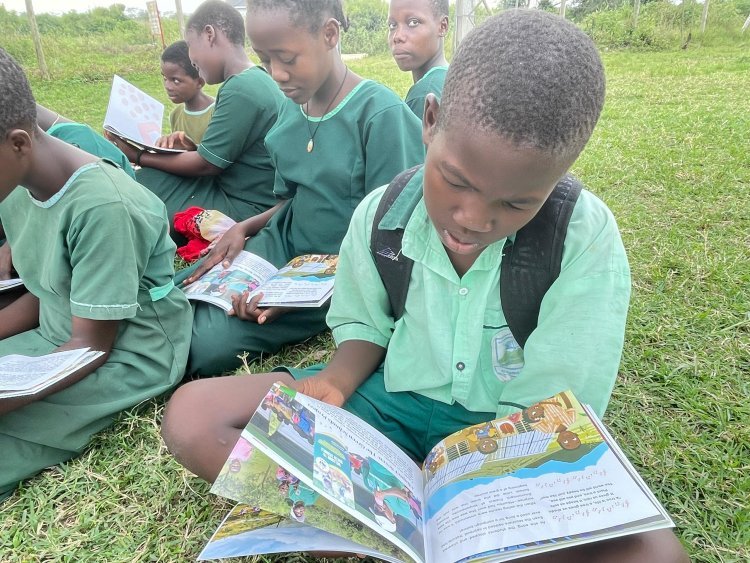
The patrons were also introduced to the accompanying Teachers’ Guide, which enables school patrons to align the playbook with Uganda’s curriculum through activities, reflections, and practical conservation tasks.
“When pupils see Mbambu confronting challenges similar to theirs, they are more inspired to act. Also It gives us a fresh, creative way to build environmental responsibility.” shared Kiirisa Robert, a patron from Katunguru Primary School.
“We believe in climate literacy that speaks to the heart, not just the head, this is why Mbambu matters. She reminds us that we cannot wait for tomorrow to fix what is breaking today. Our future depends on how we empower young people now.” Amumpaire remarked.
